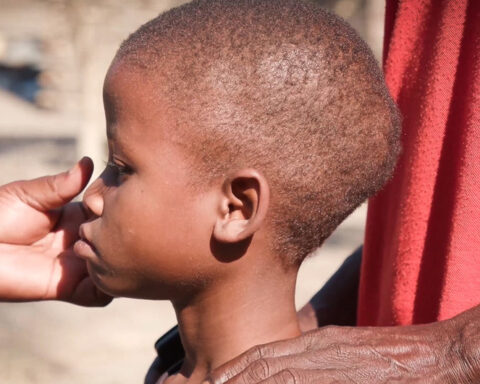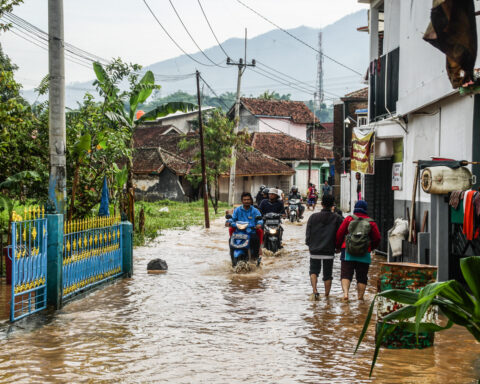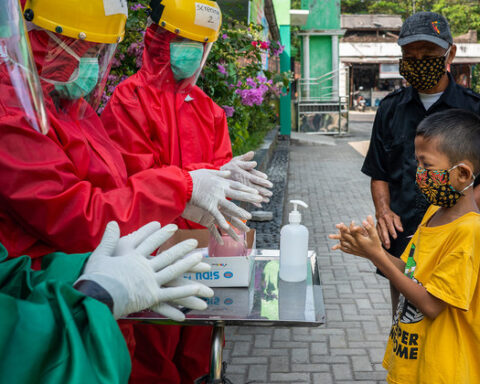One piece of good news is that a global recovery is well underway. Key economies are rebounding sharply, global trade has improved, commodity prices are higher, and investment flows have resumed.
The bad news is that, for sub-Saharan Africa, at least, near-term growth prospects are somewhat more subdued. And as long as widespread vaccination remains out of reach, you will face the unenviable task of trying to boost your economy while simultaneously dealing with repeated COVID-19 outbreaks as they arise.
How policymakers navigate this trilemma will have a huge bearing on economic and social outcomes.
The three challenges
This is the situation facing many finance ministers in sub-Saharan Africa today. And they face three immediate challenges: Firstly, to meet increased spending needs; secondly, to contain a pronounced increase in public debt, and finally, to mobilize more tax revenues.
How policymakers navigate this trilemma will have a huge bearing on economic and social outcomes in the coming years.
An incredibly difficult balancing act is needed as efforts to address one element will inevitably come at the expense of the other two. Higher spending, for example, will require that the authorities either take on more debt or increase taxes. Or both. On the other hand, efforts to boost tax revenues—although politically and socially challenging—would provide much-needed resources to either increase spending or contain debt. Or both.
Demand for government spending
Even before the coronavirus crisis, and in the context of rapid population growth, sub-Saharan Africa’s development needs were already daunting.
In the aftermath of the crisis, the region’s development path has been set back by almost a decade, making those spending needs even more pressing. For example, regionwide employment fell by about 8½ percent in 2020 due to COVID-19. More than 32 million people were thrown into poverty, and disruptions to education have jeopardized the prospects of an entire generation of schoolchildren.
Moreover, a large proportion of the region’s most marginalized workers were concentrated in some of its hardest-hit sectors, adding to inequality.
In this context, demands for increased social spending, and for investment in health, education, and infrastructure, have all, understandably, intensified. And the pressure is only going to get stronger as by 2030 nearly one in two new entrants into the global labor force will come from sub‑Saharan Africa.
Rising concerns about debt
While there is variation across countries, public debt in sub-Saharan Africa increased to almost 58 percent of GDP in 2020—the highest level in almost 20 years and a jump of more than 6 percentage points in just one year.
While below the peaks of the early 2000s in many cases, it is nonetheless a concern, owing to a steadily increasing interest burden.
In 2020, for example, interest payments reached a worrying 20 percent of tax revenue for the region as a whole, and exceeded one-third of revenue in a number of cases, diverting scarce resources from critical social and development needs.
Limited progress in raising tax revenues
Increased tax revenue mobilization is usually the main policy lever for bridging the gap between spending pressures and sustainable public debt. And yet, progress on this front has typically been slow. The specific requirements for mobilization vary from country to country—for some, the focus needs to be on streamlining exemptions, for others it could be on increasing the efficiency of existing tax systems.
But in almost all cases, raising taxes is politically difficult—more so in current circumstances, as the crisis has left many businesses and households with fewer resources. Indeed, in some countries, many have relied on tax forbearance or delayed tax payments to make it through the year.
Striking the right balance
Weighing these competing needs has never been easy. And the pandemic has made finding the right mix even more difficult. Nonetheless, inaction is not an option. Every country faces its own set of specific needs and difficult tradeoffs, but each must make its way forward as best it can.
The international community can provide invaluable breathing room. The immediate need, of course, is for support in ensuring that each country has swift and affordable access to vaccines. More broadly, however, the international community can strengthen the regional recovery by providing resources to help relax the trilemma, including through grants, concessional financing, the extension of the G20 Debt Service Suspension Initiative, or, in some cases, debt treatment under the Common Framework.
But the main effort must come from within sub-Saharan Africa. Bold and transformative reforms are needed now more urgently than ever.
To engender a robust post-COVID recovery, policymakers need to look for opportunities to expand what’s possible under the trilemma. On the spending side, for example, greater transparency and governance reforms can lift the efficiency of public spending and ensure that the authorities’ scarce resources are helping people who need it most.
On the revenue side, such transparency and targeting are also more likely to entice greater tax compliance. Efforts to improve tax administration, including through the use of new digital technologies, can broaden the tax base. And more generally, authorities should seek ways to raise more revenue in a manner that protects the vulnerable and growth.
On debt sustainability, medium-term fiscal frameworks are needed to strike a balance between the required short-term, supportive fiscal stance with medium-term consolidation that will be vital in containing borrowing costs and sustaining confidence, especially where debt is high and financing tight.
Complementing these efforts, authorities should accelerate reforms to promote private sector activity and economic diversification, which will help lift potential growth and resilience, and create jobs. We will be publishing soon some analysis on the long-run benefits of measures to promote private investment.
In all these areas, through program engagement, through emergency financing, through technical assistance, or simply through policy advice, the IMF stands ready to help.





